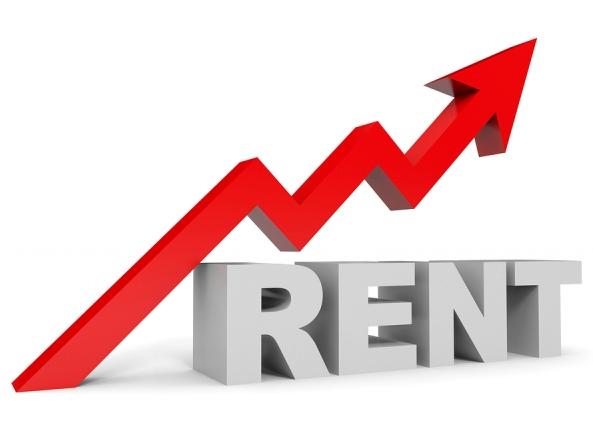
Renters of rent-stabilized apartments in West Hollywood will see their rents increase by 2.25% on leases up for renewal beginning Sept. 1.
The increase is being announced in flyers recently put in the mail to those renters.
The 2.25% increase is a drop from the 3% increase authorized for Sept. 1, 2018, which had been the highest increase in years. Still, it is much higher than what tenants have experienced in earlier years. The increase in September 2017 was 1.75%. In September 2016 it was 1% and in September 2015 it was 0.75%.
The annual rent increase is set as 75% of the annual increase in the Consumer Price Index for the Los Angeles-Long Beach-Anaheim region, which was 3.1%. The CPI is calculated annually by the federal Department of Labor’s Bureau of Statistics.
The rent increases apply only to rent-stabilized apartments, which make up 93% of the city’s rental housing units and house 78% of WeHo residents. Rent-stabilized units are those built before July 1, 1979. While owners of rent-stabilized buildings must limit rent increases to the city’s designated percentage for existing tenants, they can raise the rent to the market level when a tenant moves out.
In addition to the authorized rent increase, tenants are being notified that the “no fault” eviction fee that landlords must pay to a tenant removed from his or her apartment was increased by 5.4% as of this past July 1. That relocation fee is based on the percentage change in the “rent of primary residence” component of the Los Angeles/Long Beach/Anaheim area.
A tenant evicted for a reason other than violation of his or her lease (for example, to house a member of the landlord’s family or so that the landlord can leave the rental business), must be paid $7,506 if he or she is living in a studio apartment, $10,598 if living in a one-bedroom apartment, and $14,275 for a two-bedroom and $18,840 for an apartment with three or more bedrooms.
A tenant who is 62 years old or older, disabled, has a dependent minor child, is terminally ill or lives on a moderate household income is paid $19,869. A tenant described as having a “low household income” tenant is paid $25,020.
Area household incomes are calculated by the U.S. Department of Housing and Urban Development and vary according to the size of a household. The range is shown in the chart below.


[…] can solely be elevated as soon as yearly, after which solely by a set quantity. Presently, it’s capped at 2.25%, and lease will increase of any form have been particularly prohibited throughout the pandemic. (As […]
[…] that rents can only be increased once annually, and then only by a set amount. Currently, it’s capped at 2.25%, and rent increases of any kind were specifically prohibited during the pandemic. (As were […]
This current City Council could have fought for the renters which make up 80% of the residents to keep the rent increase at the most minimal amount possible. Instead they chose to give the property owners more money which I am sure is payback for campaign donations. This Council’s legacy will be that the majority of the resident’s quality of life means very little to nothing to them.
The City Council established the formula for calculating the Annual General Adjustment years ago and has maintained an arms-length relationship ever since. (See WeHo Municipal Code 17.36.020 & 17.36.030) The established formula allows for an annual increase from 0.00% up to a maximum of 7.0%, based on the CPI increase. This remains one of the most restrictive rent increase policies in the state, if not the nation. In comparison, the City of Los Angeles’ Annual General Adjustment ranges from a minimum 3.0% increase up to 8.0%. Embedded in the WHMC is a trigger that requires the Council to review the… Read more »
Indeed! Thanks for this info. City Council has no say. And as a renter of 9 years in a rent-stabilized apartment, my rent is currently $100/month BELOW what it would have been had it just kept up with general US inflation rates. I have no complaint with the new rate!
I’m sorry you disagree with me, but City Council has a great deal of influence on rent increases. They should have made it zero this year since it was so high last year. When 80% of you constituency are renters, you don’t throw them under the bus.